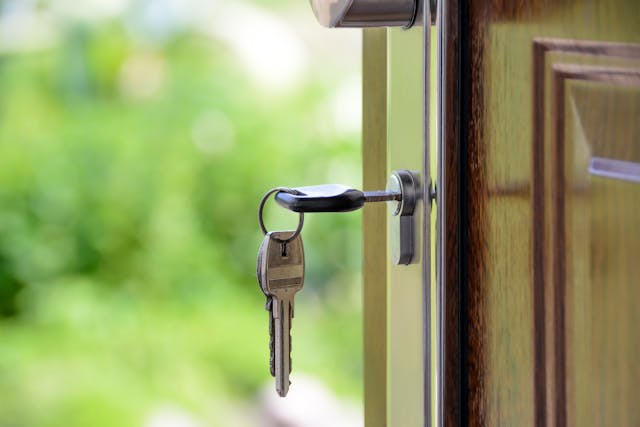Renting vs. Buying: Which Is the Right Choice for You?
The decision to rent or buy a home is a significant one, and it involves various factors that should be carefully considered. Both options offer distinct advantages and potential drawbacks, and the right choice depends largely on an individual’s financial situation, lifestyle preferences, and long-term goals. This article explores the key differences between renting and buying, highlighting the benefits and challenges of each, to help you make an informed decision.

Renting: Advantages and Disadvantages
Renting involves paying a landlord for the temporary use of a property, typically under a lease agreement that lasts for a year or more. Renters are not responsible for maintenance, property taxes, or the long-term financial commitment associated with ownership. However, renting comes with its own set of pros and cons.
Advantages of Renting
-
Flexibility and Mobility: Renting provides a level of mobility that homeownership cannot. Lease agreements typically last for one year, offering renters the option to relocate relatively easily without the burden of selling a property. This is especially beneficial for individuals who may need to move for work or personal reasons.
-
Lower Initial Costs: When renting, the upfront costs are generally much lower than buying. Renters typically need to pay a security deposit and possibly a few months' rent in advance, whereas homebuyers must cover a down payment, closing costs, and various fees.
-
Maintenance and Repairs: In most rental agreements, the landlord is responsible for the maintenance and repair of the property. This eliminates the financial and time investment that homeowners must dedicate to upkeep and emergency repairs.
Disadvantages of Renting
-
No Equity Building: One of the biggest disadvantages of renting is that payments do not contribute to building equity in a property. Renters essentially pay for the right to live in the space without accumulating ownership of the property.
-
Rent Increases: Rent prices may increase at the end of a lease term, which can make long-term affordability uncertain. Renters may also face restrictions on renewing their leases or be forced to move if the property is sold.
-
Limited Personalization: Renters often face limitations on customizing or making significant changes to their living space, as the property belongs to the landlord.
Buying: Advantages and Disadvantages
Buying a home entails securing a mortgage loan, usually with a 15- to 30-year term, to purchase the property outright. Homeowners are responsible for both the upkeep of the property and any associated costs, such as property taxes and insurance. However, owning a home also offers substantial financial benefits and responsibilities.
Advantages of Buying
-
Equity and Investment: One of the most significant advantages of owning a home is the ability to build equity over time. With each mortgage payment, a portion goes toward reducing the loan balance, thus increasing the homeowner’s ownership stake in the property. Over time, property values may appreciate, further enhancing the investment.
-
Stability: Homeownership provides long-term stability, as homeowners are not subject to rent increases or the uncertainty of lease terms. Fixed-rate mortgages offer predictable monthly payments, which can be beneficial for budgeting.
-
Customization and Control: Homeowners have the freedom to modify, renovate, and personalize their property to suit their preferences. This includes making long-term changes that can increase the home’s value.
Disadvantages of Buying
-
Higher Initial Costs: The upfront costs of buying a home are considerably higher than renting. Buyers must save for a down payment, typically ranging from 3% to 20% of the home’s purchase price, in addition to closing costs, home inspection fees, and other expenses.
-
Ongoing Costs and Maintenance: Homeowners bear the full responsibility for property maintenance and repairs, which can be costly and time-consuming. These costs, along with property taxes, homeowners insurance, and utilities, contribute to the financial burden of owning a home.
-
Less Flexibility: Selling a home can be a lengthy and expensive process, and the housing market’s conditions may not always be favorable. Homeowners looking to move may find it challenging to sell quickly, particularly in a down market, which can lead to financial losses.

Key Factors to Consider
When deciding between renting and buying, several factors should influence your decision:
1. Financial Stability:
Renting typically requires less immediate financial commitment, while buying a home demands significant upfront capital and a stable income. Consider your savings, job security, and whether you are prepared for the ongoing costs of homeownership.
2. Long-Term Plans:
If you plan to stay in one location for many years, buying may be a more advantageous option, as the costs of purchasing a home can be offset over time with equity growth. If you anticipate moving frequently or prefer flexibility, renting might be the better choice.
3. Market Conditions:
The local housing market can significantly impact both renting and buying decisions. In markets with high property values or rising rental prices, buying may be more cost-effective in the long run. However, in areas with uncertain property values or an oversupply of rental properties, renting may provide better value.
Conclusion
The decision to rent or buy is a highly personal one, shaped by individual circumstances, financial considerations, and future plans. Renting offers flexibility, lower initial costs, and less responsibility for maintenance, while buying provides the opportunity to build equity and have greater control over your living space. By carefully evaluating your financial situation, long-term goals, and the local real estate market, you can make the choice that best suits your lifestyle and needs.












